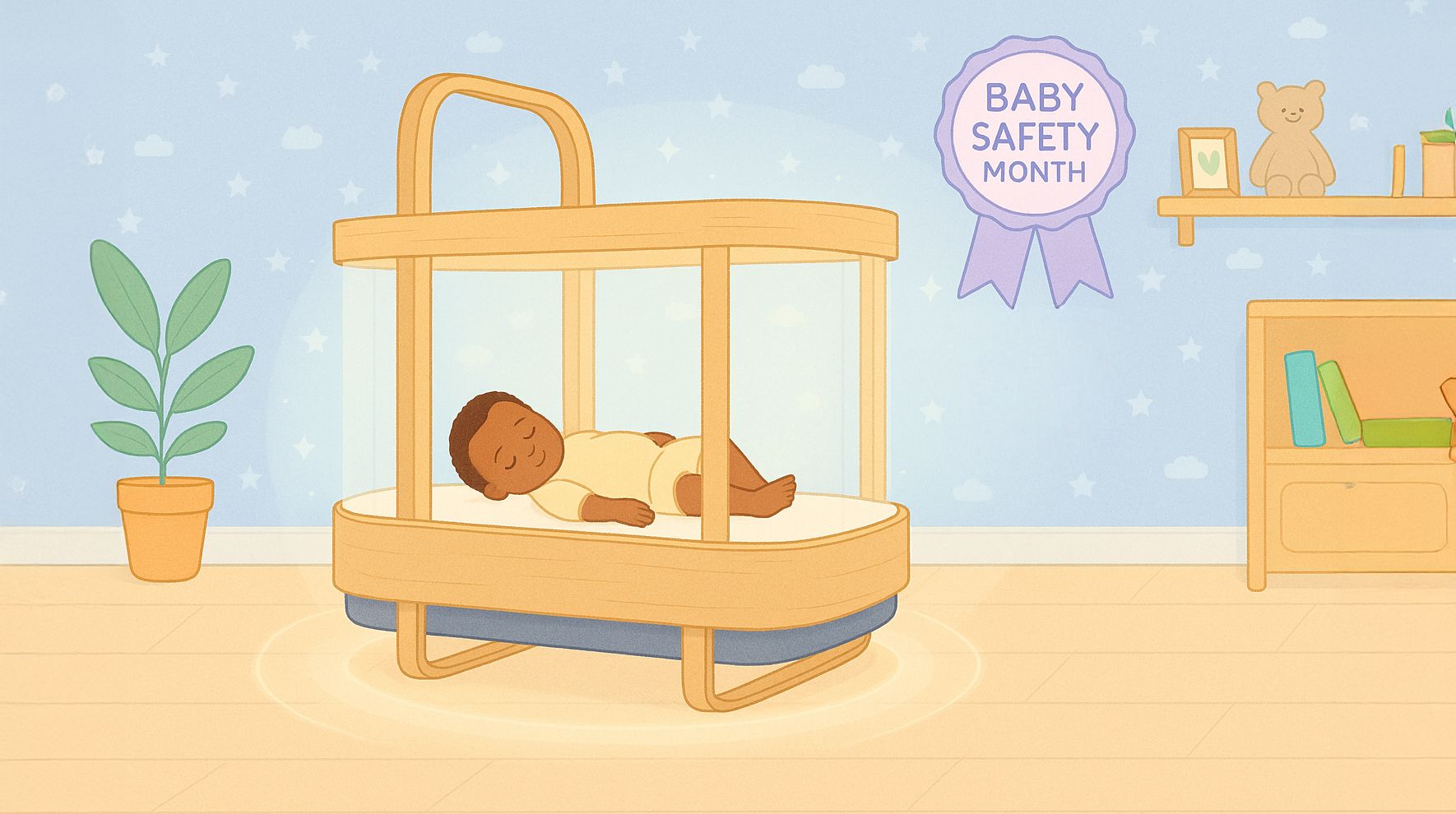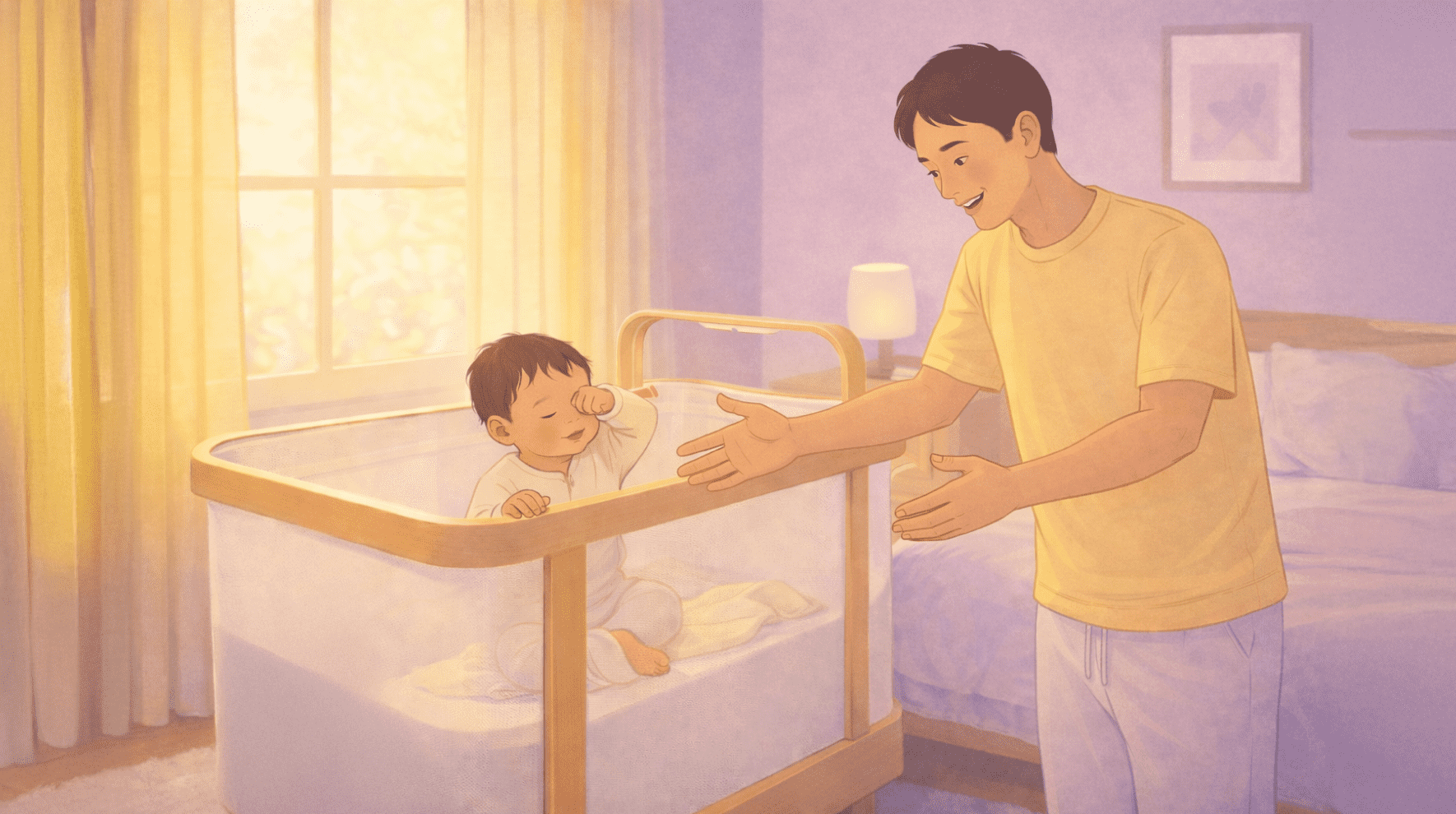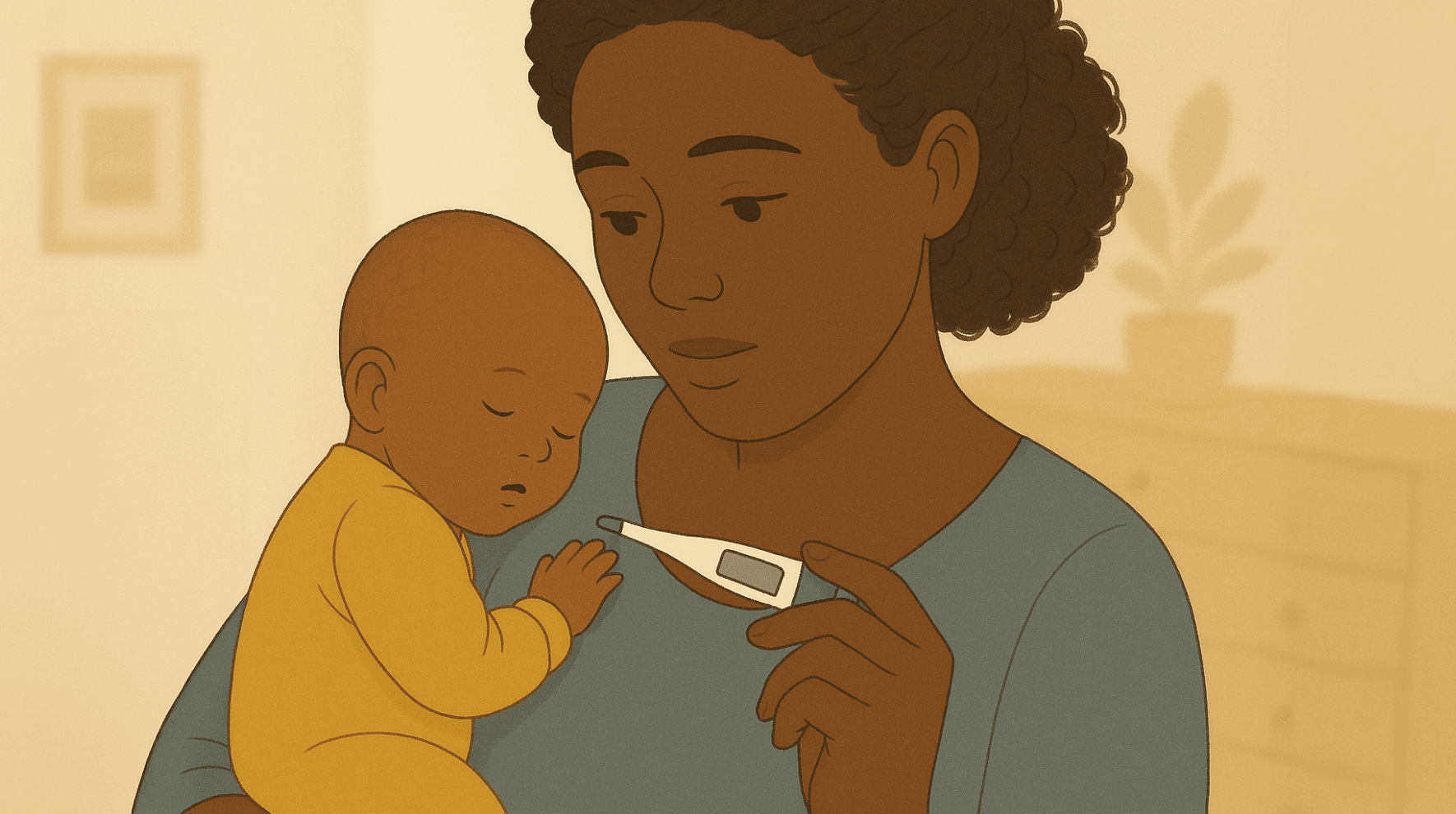



The Ultimate Guide
to Baby Sleep
Why do babies sleep the way they do? How many naps should they be taking? And how can you preserve your own sleep and sanity? Find the answers in these month-by-month evidence-based guides.
Bounce to month
0–24 months, just like our crib.
Dr. Anoop Rao
Medical Advisor
Dr. Rao is a Neonatologist at the Lucile Packard Children's Hospital at Stanford. He is triple board-certified in Pediatrics, Neonatology, and Clinical Informatics.
Dr. Rao is also an educator and a Clinical Assistant Professor at Stanford University School of Medicine. He has an MS degree in Biological Engineering from MIT, followed by fellowship training at Harvard.
Other related reads

Science of baby sleep
Baby safety month checklist: Is your baby’s sleep space really safe?
Your baby’s crib may look cozy, but is it truly safe? This checklist helps parents spot hidden risks and create the safest sleep space.

Science of baby sleep
10 Tips to help your baby adapt to daylight saving time changes
Because daylight saving time shifts your baby’s internal clock, small schedule tweaks can help ease sleep disruptions and early wake-ups.


The Ultimate Guide to Baby Sleep
Why do babies sleep the way they do? How many naps should they be taking? And how can you preserve your own sleep and sanity? Find the answers in these month-by-month evidence-based guides.
Bounce to month
We have you covered from 0 — 24 months, just like our crib.

Dr. Anoop Rao
|Dr. Rao is a Neonatologist at the Lucile Packard Children's Hospital at Stanford. He is triple board-certified in Pediatrics, Neonatology, and Clinical Informatics.
Dr. Rao is also an educator and a Clinical Assistant Professor at Stanford University School of Medicine. He has an MS degree in Biological Engineering from MIT, followed by fellowship training at Harvard.
Other related reads

Science of baby sleep
Baby safety month checklist: Is your baby’s sleep space really safe?
Your baby’s crib may look cozy, but is it truly safe? This checklist helps parents spot hidden risks and create the safest sleep space.

Science of baby sleep
10 Tips to help your baby adapt to daylight saving time changes
Because daylight saving time shifts your baby’s internal clock, small schedule tweaks can help ease sleep disruptions and early wake-ups.

Science of baby sleep
What’s a healthy temperature for a newborn? A quick guide for parents
Because knowing how to check your baby’s temperature correctly brings clarity and calm, here’s how to do it confidently at every age.













